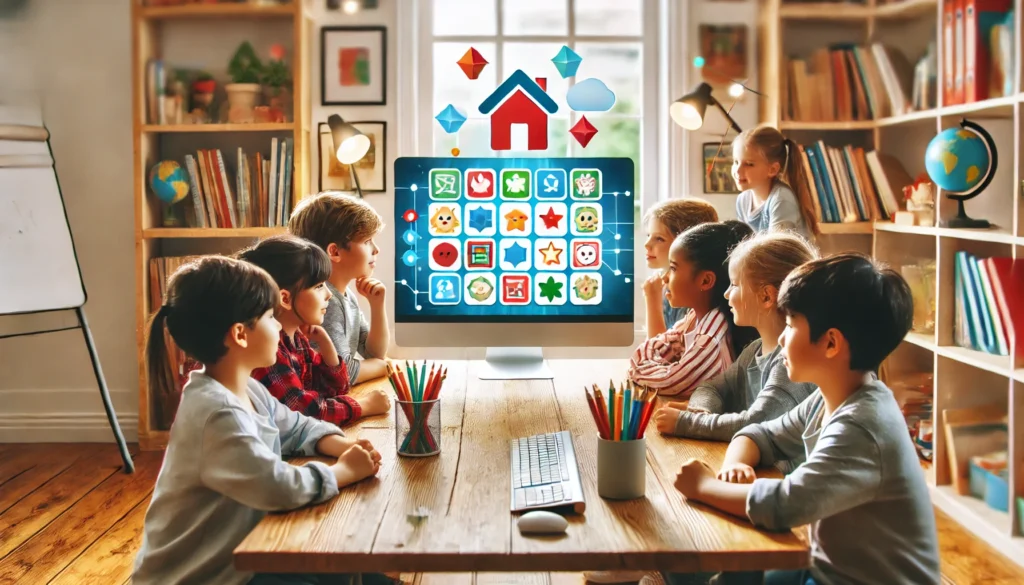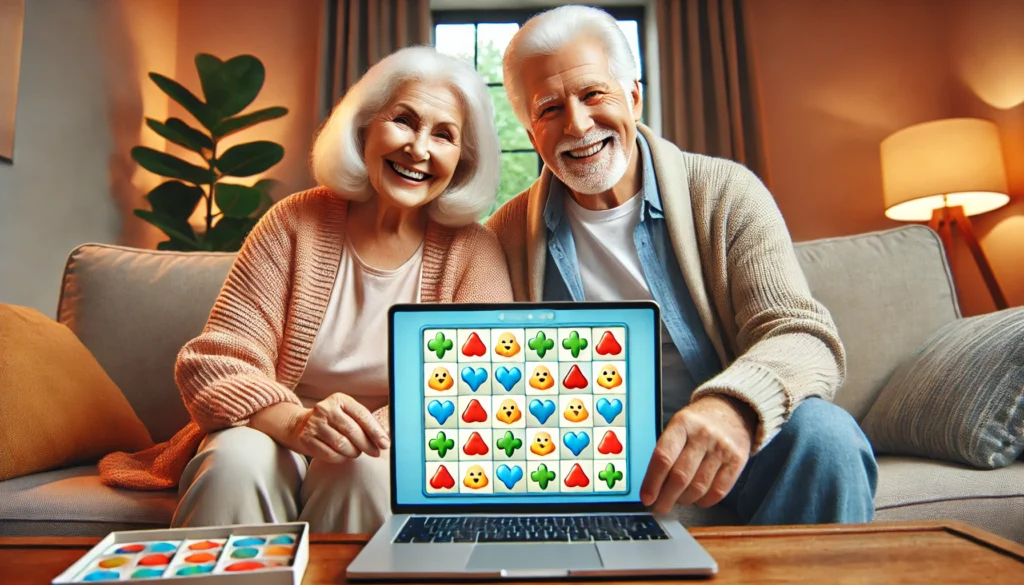Ignite Your Cognitive Potential with Matching Games
In an age where mental agility is as prized as physical fitness, engaging in activities that challenge and enhance cognitive function has become essential. One of the most entertaining and effective ways to boost your brainpower is through fun matching games. These captivating games not only provide hours of entertainment but also serve as potent tools for sharpening short-term memory, enhancing pattern recognition, and promoting mental clarity.
From traditional card games to innovative digital formats offering free matching games, the diversity of options ensures that there is something for everyone. Whether you are exploring a classic find the match game with friends or delving into thematic digital puzzles on your smartphone, matching games cater to all ages and skill levels. This article will unravel the science behind these games, highlight their cognitive and emotional benefits, and offer practical strategies for incorporating them into your daily routine. By the end, you will understand why matching games are more than just a pastime—they are a gateway to a sharper, more resilient mind.
You may also like: How to Improve Working Memory: Top Short-Term Boosters and Practical Tips
The Science Behind Matching Games
Matching games are more than a source of fun; they are rooted in cognitive science, targeting essential brain functions such as memory recall, pattern recognition, and concentration. At their core, these games challenge the brain to identify and remember patterns, shapes, or symbols, all while managing distractions and time constraints. This dynamic process strengthens neural pathways and promotes synaptic plasticity, the brain’s ability to adapt and reorganize itself.
Neuroscientists have long studied the impact of matching games on cognitive function. The act of remembering card positions in a find the match game, for instance, activates the hippocampus and prefrontal cortex—regions responsible for memory formation and decision-making. This mental exercise not only improves short-term memory but also enhances executive functions such as problem-solving and multitasking. Regular engagement with fun matching games has even been linked to a reduction in age-related cognitive decline, making them a valuable tool for individuals of all ages.
The Cognitive Benefits of Matching Games
Memory Enhancement
One of the most notable benefits of matching games is their ability to improve memory. By requiring players to remember the locations of specific cards or images, these games train the brain to store and retrieve information more efficiently. This skill is particularly valuable in real-life scenarios, such as recalling names, addresses, or daily tasks. Over time, regular participation in free matching games can lead to significant improvements in both short-term and long-term memory.
Attention and Focus
Matching games demand sustained attention, as players must concentrate on identifying patterns and avoiding distractions. This level of focus translates to better performance in other areas of life, from academic pursuits to professional tasks. Activities like the find the match game teach players to manage their attention effectively, a skill that becomes increasingly important in today’s fast-paced, multitasking world.
Stress Reduction
Engaging in fun matching games provides a welcome break from daily stressors. The playful and interactive nature of these games encourages relaxation and mindfulness, promoting a sense of well-being. Studies have shown that regular participation in such activities can lower cortisol levels, the hormone associated with stress, thereby enhancing overall mental health.
Cross-Generational Appeal
One of the most remarkable aspects of matching games is their universal appeal. From children developing foundational cognitive skills to seniors seeking to maintain mental sharpness, these games cater to a broad audience. The availability of free matching games ensures accessibility, allowing individuals from all walks of life to benefit from their cognitive and emotional advantages.
Types of Matching Games
Traditional Card-Based Matching Games
Classic card games, such as Memory or Concentration, are timeless examples of matching games. These involve flipping over cards to find pairs, challenging players to recall card locations and recognize matching patterns. Simple to learn yet endlessly engaging, these games are ideal for family gatherings or solo play.
Digital Matching Games
The digital age has revolutionized matching games, introducing interactive and visually stimulating formats. Platforms offering free matching games provide endless options, from themed puzzles to competitive multiplayer challenges. Apps and online platforms cater to various skill levels and preferences, ensuring that everyone can find a suitable match.
Educational Matching Games
Educational matching games combine cognitive stimulation with learning objectives. These games often feature vocabulary words, math problems, or historical facts, making them valuable tools for students. By integrating educational content, these games enhance learning retention while keeping players entertained.
Themed Matching Games
From animals and nature to pop culture and fantasy, themed matching games offer endless customization. These games cater to niche interests, making them particularly appealing to specific demographics. Themed games also provide opportunities for creative engagement, encouraging players to explore new topics and ideas.
Incorporating Matching Games into Daily Life
Creating a Routine
To maximize the benefits of matching games, consistency is key. Set aside dedicated time each day or week to engage in these activities, treating them as a valuable investment in your cognitive health. Whether it’s a quick round of a find the match game during lunch or an evening session with family, regular play ensures sustained improvements.
Exploring Digital Options
Take advantage of the wealth of free matching games available online and through mobile apps. These digital formats offer convenience and variety, allowing you to explore new challenges and track your progress. Many apps also include features like difficulty adjustments and performance metrics, making them ideal for personalized cognitive training.

Encouraging Group Play
Matching games are a fantastic way to connect with others. Organize game nights with friends or family, fostering social interaction while boosting cognitive skills. Group play adds an element of healthy competition, motivating players to perform their best and enhancing the overall experience.
Combining with Other Brain-Boosting Activities
For a comprehensive approach to cognitive enhancement, pair matching games with other brain-boosting activities such as puzzles, reading, or physical exercise. This holistic strategy amplifies the benefits, promoting overall mental and physical well-being.
The Long-Term Impact of Matching Games
Regular participation in matching games offers more than just immediate cognitive benefits; it contributes to long-term brain health and resilience. By continuously challenging the brain, these games help maintain neural plasticity, reducing the risk of age-related cognitive decline. For seniors, this means improved memory retention and a lower likelihood of developing conditions such as Alzheimer’s disease.
Matching games also foster emotional well-being. The sense of accomplishment that comes from mastering a challenging game boosts self-confidence and promotes a positive mindset. Over time, these emotional benefits translate to better mental health, creating a virtuous cycle of cognitive and emotional growth.

A Fun Path to a Sharper Mind
Incorporating matching games into your daily life isn’t just about having fun; it’s a meaningful step toward enhancing cognitive function and emotional well-being. Whether you’re delving into a find the match game with friends or exploring the myriad free matching games available online, these activities provide an engaging way to nurture your brain.
By embracing matching games, you not only unlock their immediate benefits but also invest in your long-term mental health. These games are more than just an entertaining pastime; they are a powerful tool for achieving sharper memory, better focus, and improved emotional resilience. Start playing today and experience the transformative effects of this delightful cognitive adventure.
Further Reading
SoM: Boost Your Brain: Working Memory Exercises for Adults
ND: 12 Fun Working Memory Games And Activities For Adults
LH: 25 Memory Exercises That Actually Help You Remember More
MND: 22 brain exercises to improve memory, cognition, and creativity
MMM: How to Improve Working Memory: 8 Exercises That Work
Important Note: The information contained in this article is for general informational purposes only, and should not be construed as health or medical advice, nor is it intended to diagnose, prevent, treat, or cure any disease or health condition. Before embarking on any diet, fitness regimen, or program of nutritional supplementation, it is advisable to consult your healthcare professional in order to determine its safety and probable efficacy in terms of your individual state of health.
Regarding Nutritional Supplements Or Other Non-Prescription Health Products: If any nutritional supplements or other non-prescription health products are mentioned in the foregoing article, any claims or statements made about them have not been evaluated by the U.S. Food and Drug Administration, and such nutritional supplements or other health products are not intended to diagnose, treat, cure, or prevent any disease.


